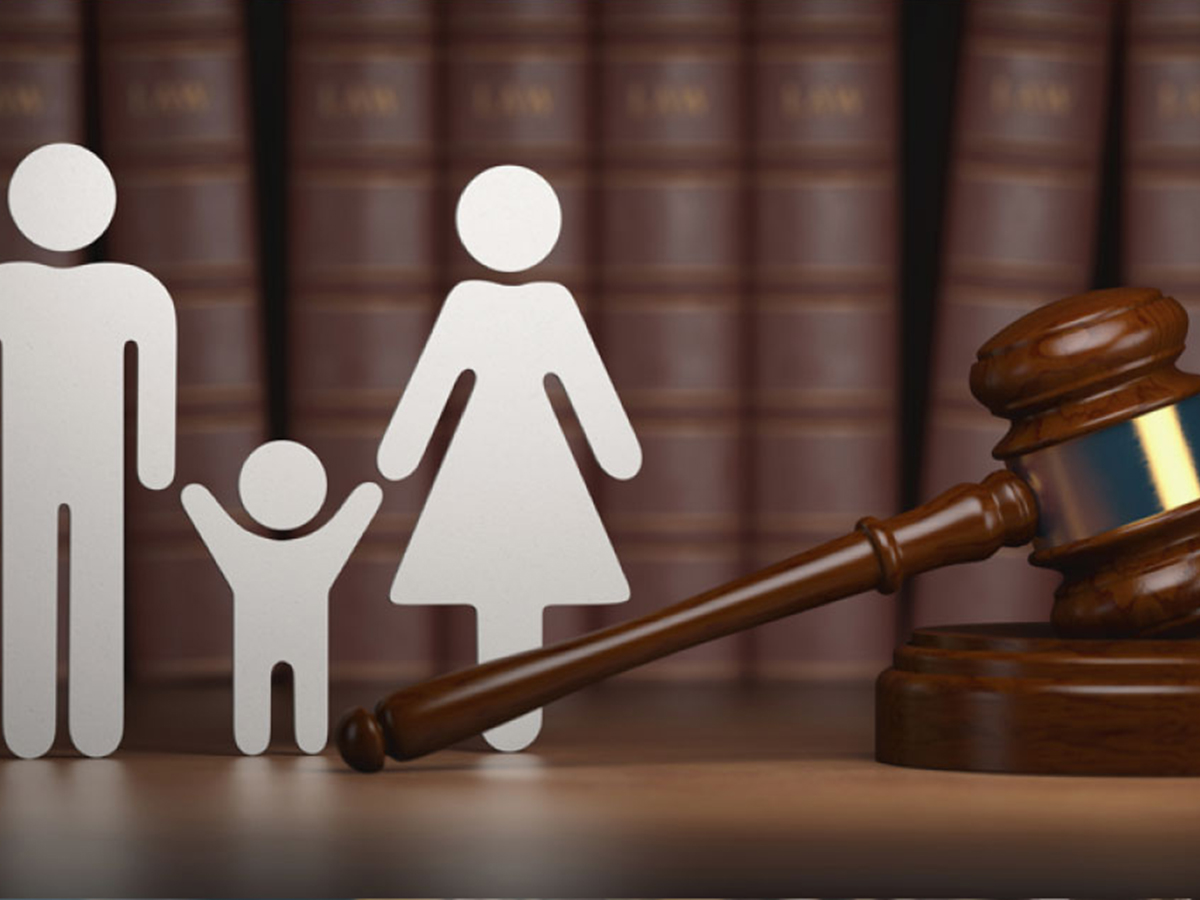Family law is a legal practice area that focuses on issues involving family relationships such as marriage, adoption, divorce, and child custody, among others. Attorneys practicing Family Law can represent clients in family court proceedings or in related negotiations. They can also draft important legal documents such as court petitions or property agreements.
Some Family Law attorneys even specialize in adoption, paternity, emancipation, or other matters not usually related to divorce. The matter of family encompasses so many life aspects. Lawyers in the field, therefore, help all kinds of people facing all kinds of sensitive issues that many people wouldn’t immediately assume go under the Family Law umbrella.

Helpful Terms to Know the Family Law
- Emancipation: A court process through which a minor becomes self-supporting, assumes adult responsibility for their personal welfare, and is no longer under the care of their parents.
- Marital Property in Family Law: Property acquired by either spouse during the course of a marriage that is subject to division upon divorce.
- Alimony, Family Law: An allowance made to one spouse by the other for support during or after a legal separation or divorce.
- Paternity: Origin or descent from a father to establish paternity is to confirm the identity of a child’s biological father.
- Prenuptial Agreement: An agreement made between a man and a woman before marrying in which they give up future rights to each other’s property in the event of a divorce or death.
- Child Support: Children need financial support from their parents, and they have a legal right to it.
- Divorce and Separation: If you separate or divorce, you will need to make many important decisions, such as where you will live and how you will manage your finances.
- Adoption / Foster Care: Adoption is a complex process that differs according to the type of adoption, where the child is from, variances in state laws, and other factors. Therefore, it’s significant to consult with a Family Law attorney. Foster parents sometimes adopt their foster children, but the foster process does not necessarily require legal representation.

What Family Law Attorneys do?
As the term implies, family lawyers focus on issues that have an impact on families. They deal with matters such as divorce proceedings, adoptions, and child custody. Common tasks include drafting custody agreements, wills, prenuptial agreements, and other documents. While some family lawyers engage in litigation, it is a less prevalent aspect of this practice.
In divorce cases, for example, considerations may include whether they are handled on a fault or no-fault basis, how assets will be divided, and various possible grounds such as irreconcilable differences, mental cruelty, or desertion. Child custody and support may be major factors as well. Some Family Law attorneys also delve into criminal law, dealing with individuals who have been accused of abuse or neglect. Finally, as society changes and technology advances, new aspects of Family Law are likely to emerge. Applications in genetic engineering of human beings, for example, may bring a host of new legal questions that Family Law attorneys will help address.

Emancipation Family Law
Emancipation is a legal way for children to become adults before they are 18. Once a child is emancipated, his or her parents do not have custody or control of him or her anymore. Emancipation is usually forever. But the court can cancel the emancipation if the minor asking for the emancipation lies to the court or is no longer able to support himself or herself.
Marital Property
Marital property is property acquired after the parties are married. Property acquired before the marriage is considered the individual and separate property of the acquiring spouse, and the court will have no authority to distribute individual property when the marriage is dissolved.
Alimony
Alimony, spousal support, and maintenance are all words for the same thing: one spouse paying support to the other after a divorce. It’s designed to help a lower-earning spouse, or a spouse who’s been out of the workforce entirely while raising children or taking care of the household, to get through the divorce process and transition into being self-supporting. Over the last decade, alimony has become less popular with courts.
Paternity
Paternity law involves the legal recognition of a child’s biological father, typically established through genetic testing. For example, when a child’s paternity is in question, or denied by the father, the mother may file a paternity suit against the alleged father to obtain child support. This section includes resources and articles about how paternity is established, its legal significance, grounds for challenging paternity claims, an overview of paternity tests, links to paternity laws in all 50 states and other related topics.
Prenuptial Agreement
A prenuptial agreement, also known as ante nuptial agreement, premarital agreement, or prenup, is a contract entered into prior to marriage setting the terms for separation. In general, provisions that tend to unreasonably encourage divorce or separation are unenforceable on grounds of public policy.
Child support
Child support refers to the sum that the noncustodial parent must pay to the custodian. This sum serves as a parental contribution for the child’s basic living expenses, such as food, clothing, shelter, health care, and education. When a court orders a parent to pay child support, the parent must pay directly to the child’s custodian rather than directly to the child. States generally do not impose an obligation to pay support for a child after that child has reached the age of 18.
Divorce and Separation
A legal separation, is a court order that mandates the rights and duties of a couple while they are still married, but living apart; in a divorce, the spouses are no longer married. Although legal separations aren’t very common, they can be helpful especially while the spouses work through any personal or financial issues affecting the marriage. Because there are advantages and disadvantages to both processes, there are many things to consider when contemplating legal separation vs. divorce.
Adoption / Foster Care
It is vital that the adoption process is safeguarded by robust and appropriate laws and policies to protect the best interests of children first and foremost, as well as the parents involved. Child Welfare Information Gateway’s 2020 resource summarizes state laws regarding the types of information that adoptive parents are provided about the background of the child they are hoping to adopt. The information generally relates to medical and genetic history, family and social background, and mental health history of the child and the child’s birth family. For the adopted child or youth, it also may include placement history and any history of abuse or neglect. Exceptions for stepparent and relative adoptions also are discussed.

